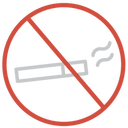Read All About It:
penile health

new cases of penile cancer are diagnosed each year in the U.S.
Most penile cancers occur on the foreskin (in men who have not been circumcised) or on the tip. These tumors tend to grow slowly. If they are found early, they can often be cured.
How the Penis
Changes With Age

- Color: Blood flow to the penis decreases, making it appear lighter
- Size: Decreased blood flow may result in penile shortening
- Skin: As with the rest of the body, skin on the penis can appear patchy and irregular
- Sensitivity: Lower testosterone levels can make the penis less sensitive and erections less hard
- Urinary problems may increase with age
ways to keep
your penis healthy

Maintain a
healthy weight

Eat a
healthy diet

Reduce
stress

Quit
smoking

Drink alcohol
in moderation

Get a good
night’s sleep

Exercise
often

Stay
sexually active
talk to your doctor
if you notice:
Changes in the way you ejaculate
Bleeding during urination or ejaculation
Warts, bumps, lesions or a rash on your penis
A severely bent or curved penis that causes
pain or interferes with sexual activityA burning sensation when you urinate
Discharge from your penis
Significant decline in sexual desire

For more information on Penile Health, listen to our podcast:
For more information on Penile Health, visit the Urology Care Foundation’s website: UrologyHealth.org
UrologyHealth.org | FALL 2018 | UROLOGYHEALTH extra